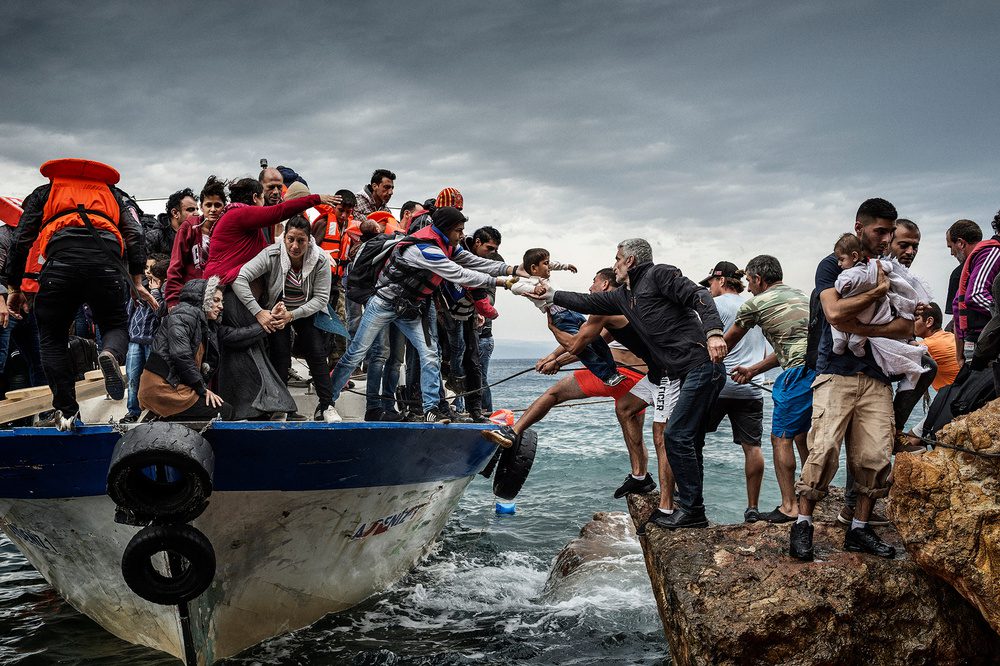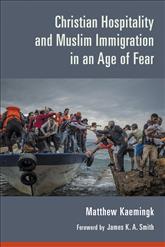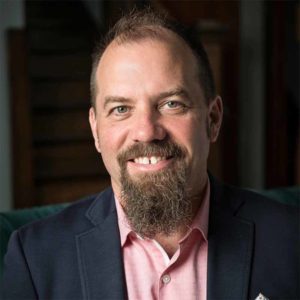This article originally appeared on the EerdWord blog on March 6, 2018.
A cab ride on a recent trip to Ottawa, the Canadian capital, turned into a theological adventure. A little bleary-eyed at 4 a. m., I wasn’t exactly craving conversation; but that didn’t deter my cabbie. An immigrant from Afghanistan who has lived in Canada for twenty-seven years, he was happy to sing the praises of the city and the country.
There was a certain irony to this that made me smile quietly in the back seat: This Muslim man was taking proud ownership of the country I had left. On a warm morning in May, he practically hymned the delights of skating on the Rideau Canal in February.

He was excited about the prospects of the Ottawa Senators, at that time vying for a spot in the Stanley Cup final. He was grateful for his daughters’ education, one of whom had gone on to become a nurse. He had fond memories of a boyhood spent at a summer home in the cool mountain regions of Afghanistan. When I asked if he ever got back to Afghanistan, he began to tell me about the recent wedding of one of his daughters there. This is where the conversation took a decidedly theological, one might even say prophetic, turn.
His praise of Canada and its opportunity slid into a trenchant criticism of the libertarianism and licentiousness he’d seen become “normal” over the three decades in his new homeland. While he was grateful for opportunities, he was forthrightly critical of a creeping secularism that marginalized faith and celebrated promiscuity; you could feel the temperature in the cab begin to rise. His disappointment with the progressivist orthodoxy of Canadian society was palpable, and he eventually apologized for the “French” (that is, expletives) he spoke in anger. This, he emphasized, is why his daughter had found a partner elsewhere.
But in the middle of his critique of secular liberalism, he articulated what I, as a Christian, heard as a robust, affirmative theology of creation. He shared a vision for the goods of sex and marriage and friendship and community, how these creaturely blessings could be better enjoyed within boundaries, how constraints were gifts. I quietly added my “Amen,” and when I said how much my Christian faith concurred with his Muslim faith on these matters, the cab was a little outpost of camaraderie that seemed a million miles away from the politics I was returning to when my plane took off for the United States.
Granted, this kind of encounter is more frequent in Canada than the United States. Muslims constitute 3 percent of the Canadian population, 5 percent of the population of Ontario, and almost 8 percent of Toronto’s cosmopolitan population. But this is precisely why Matthew Kaemingk’s study in this book is so prescient for us. By taking the Netherlands as a case study, Kaemingk is, in a sense, engaged in time travel. To see the dynamics of Muslim immigration and Christian response in the so-called progressive Netherlands is an opportunity to glance at a possible future for North America—a glimpse that is both a cautionary tale and a laboratory to consider how things could go differently.

This is just one of the many reasons I’m grateful for Christian Hospitality and Muslim Immigration in an Age of Fear. Even more significantly, this is a book centered on an audacious claim: that theology can help us learn how to live together.
But not just any theology. In fact, Kaemingk here challenges the failure of the theological imagination to really grapple with difference. Dominant schools of thought are locked in a binary imagination that either underwrites hegemony or blithely diminishes difference in the name of a vague sense of inclusion. The failure of Christian theology to articulate a complex, nuanced affirmation of plurality and difference too often translates into heretical nationalisms or naïve, progressivist assimilationism.
Both have failed, Kaemingk shows. Thus he points us to a neglected stream of Christian thought that has pluralism encoded in its very DNA. The dominant strains of theological thinking have failed us on these questions: Issues around immigration and Islam have engendered hatred and fear, anger and misunderstanding. Kaemingk points us to a theological reservoir we’ve missed; drinking from it can nourish the church to be an outpost of kingdom hospitality in ways that are sophisticated and beautiful, realistic and hopeful.
So this singular book does two things at once: It shows the real-world relevance of Reformed public theology while also making a constructive contribution to a pressing question that continues to dominate the headlines. This isn’t just more prolegomena and throat-clearing; this is a Christian ethicist tackling a real, difficult, practical question with the resources of theology. Kaemingk doesn’t pretend to be a policy expert, nor does he take his academic credentials to be a license to freelance as an activist. The (limited but constructive) role of the ethicist and theologian here is diaconal: offered in service of those involved in legislation, policy, NGOs, activism, and the quiet, quotidian works of mercy that constitute the church’s hospitality. This book is a sign of both a renaissance and maturation of Reformed public theology. No longer focused on simply articulating “principles,” and no longer directed merely to an “inside-baseball” tribe, this is careful, constructive work done from the tradition rather than merely about it.
That said, this book is also an excellent introduction to this Reformed tradition of public thought—but it’s an introduction on the move, so to speak. Instead of a series of static portraits, Kaemingk’s book is more like a wildlife documentary: He shows you this Reformed tradition in the wild, as it were—engaged in a particular problem, in a particular context, with all of its foibles, and failures, and insights, and initiatives.
This is also why I hope Christian Hospitality and Muslim Immigration in an Age of Fear is read widely, both within the church and without. Kaemingk’s work demonstrates the enduring relevance of a Christian public theology that challenges both revolution and totalitarianism. I especially hope non-Christians will read this as a peek into the robustly Christian rationale for being hospitable neighbors. Kaemingk shows that the best Christian theology engenders pluralism, not theonomy. As he summarizes: “Kuyper’s Christological sovereignty did not make him a theocrat. Naming Christ as sovereign is something altogether different from naming Christians as sovereign.” I can think of a long list of journalists who need to understand this point. Actually, I can think of a long list of Christians who need to understand this point.

In this book Kaemingk is also making an important contribution to the advance and development of public theology more broadly, with implications beyond the specific question of Islam and immigration. In a chapter that is both illuminating and moving, he reminds us that Christ is more than a King. Drawing on under-appreciated voices like Herman Bavinck and Klaas Schilder, Kaemingk invites us, provocatively, to follow “the Naked Slave-King between Mecca and Amsterdam.”
He points to the significance of the church as the site where the Spirit nourishes a desire for pluralism “in our bones.” He emphasizes the importance of habit-forming practices that would make us want to follow the Naked Slave-King in humility, walking vulnerably alongside our neighbors. In this way, Kaemingk invites us to think of our public lives beyond the categories of creation and common grace, taking us back to the cross itself. “The hospitality of the cross,” he emphasizes, “is normative for every aspect of public life.” Here is a public theology that is ecclesial and cruciform, complex and gracious. In short, here is the public theology we need today.
